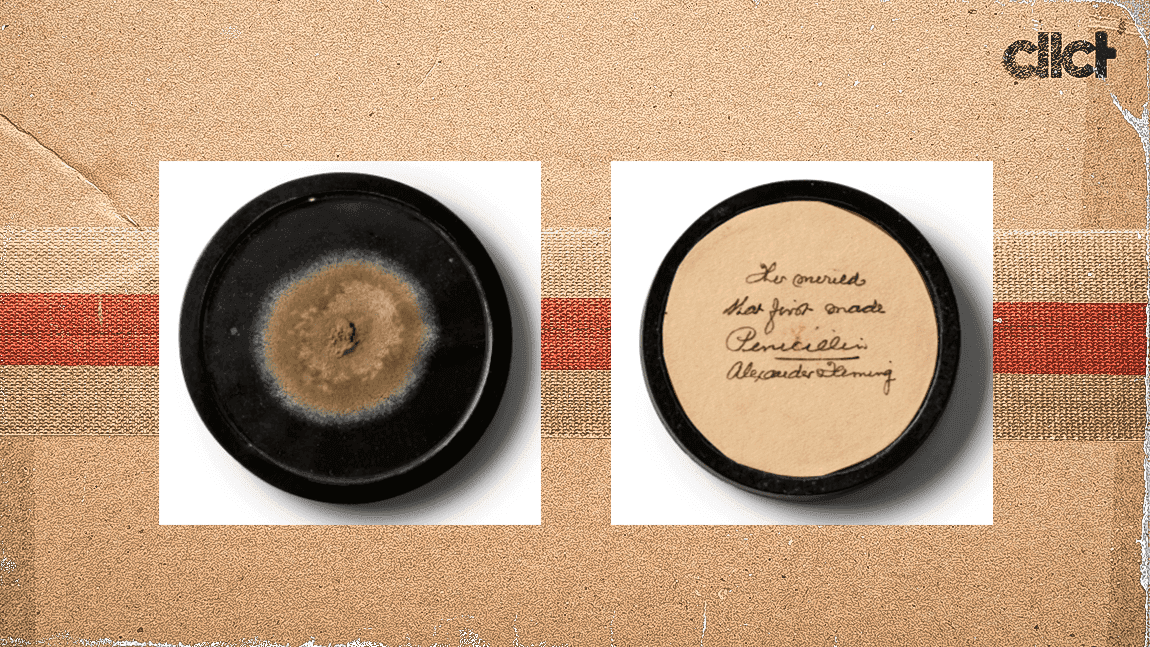A nearly 100-year-old speck of mold sold for $60,000 at auction Wednesday.
Why the lofty price tag? For mold?
Well, this isn’t merely any old piece of mold. This particular piece of mold is a sample from the very specimen used by Alexander Fleming in the development of the antibiotic penicillin.
Bonhams had placed a pre-sale estimate range of between $30,000 and $50,000 on the lot.
Fleming’s discovery of the world’s first antibiotic has saved millions of lives in the decades since, heralded as one of the greatest achievements in medicinal history. The Scottish doctor made his discovery in 1928 after observing mold growing in his laboratory had banished bacteria from the surrounding area in its Petri dish.
"When I woke up just after dawn on September 28, 1928, I certainly didn't plan to revolutionize all medicine by discovering the world's first antibiotic, or bacteria killer. But I suppose that was exactly what I did,” Fleming is quoted as saying.
The specimen sold Wednesday was inscribed, “The mould that first made penicillin,” and signed by Fleming as a gift to his niece, Mary Anne Johnston. The sample first sold in 2017 at Bonham’s for $14,617.
Fleming created a limited number of these samples and was known to give them as gifts to important people, including the Pope Pius XII, Winston Churchill and President Franklin D. Roosevelt.
It’s not known exactly how many of these relics were preserved or given out, however drug manufacturer Pfizer acquired another example, one of two given to Fleming’s laboratory assistant, for $35,160 in 1996. According to Quartz, the sale resulted in a number of previously unknown examples surfacing in subsequent years as “historians figured out that Fleming handed out mold like calling cards.”
Kevin Brown, curator of the Fleming museum, told Quartz after receiving a second mold medallion in a few months, Prince Phillip complained about getting “another one of these bloody things” each time he met Fleming.
Will Stern is a reporter and editor for cllct.

